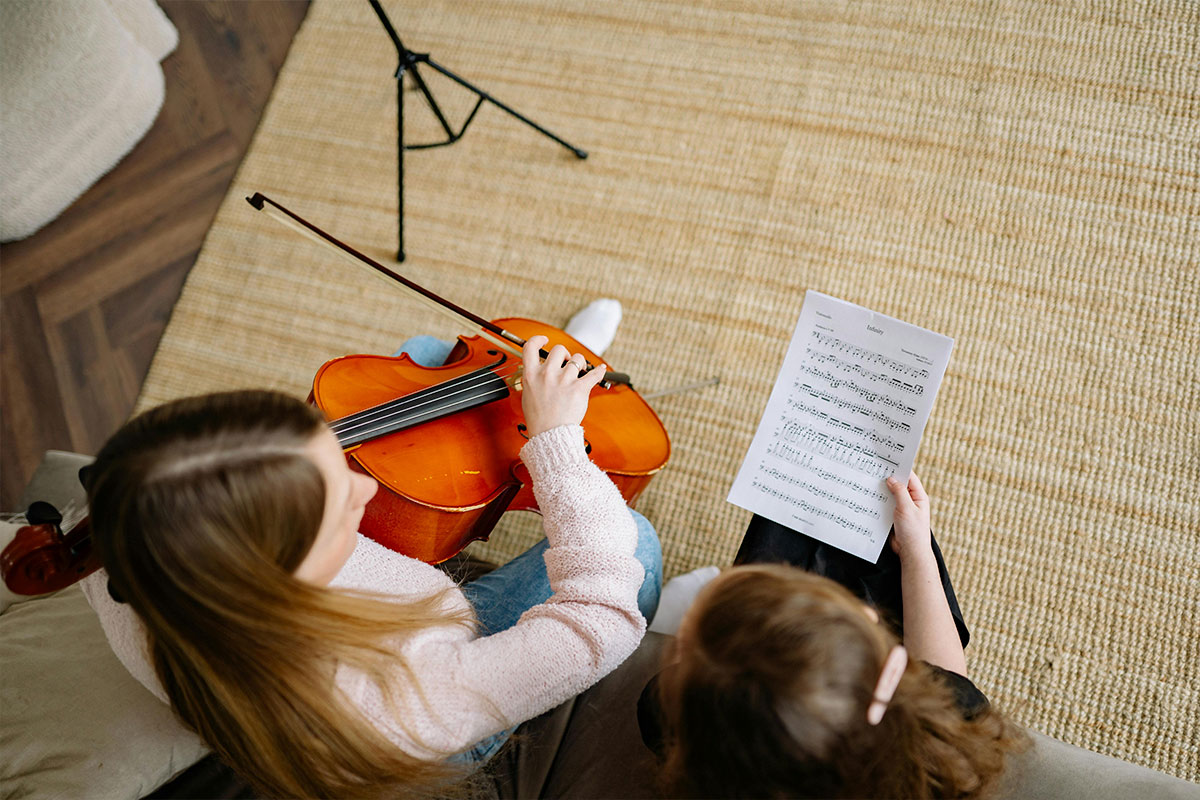My saintly mother had a very spontaneous sense of humor. She never lacked something to say, someone to talk to, or something to laugh about. She loved to talk.
When Jessica, my oldest daughter, was a baby, my mom “had conversations with her. Of course, all in my mom’s voice, who was the interlocutor of what she imagined Jessica would answer. They were complete, elaborate dialogues, long, and interactive conversations. Of course, with lots of tenderness, laughter, and love.
Every time my parents returned to visit, Jessica was a little older, and she enjoyed the beautiful time with her grandparents more and more.
One of the many one-sided conversations was when my mom would talk to Jessica, and even Jessica would thank her. The reason? It didn’t matter.
One of the scenes I remember most vividly is when Jessica sneezed. My mom would then say:
“Bless you, my love!”
And Jessica would respond (in my mom’s voice):
“Thank you!”
And my mom:
“My pleasure!”
When this scene began to unfold, Jessica was only a few months old.
As Jessica naturally continued sneezing from time to time, my mom continued the “dialogue.”
As Jessica continued to grow, and the scene kept repeating itself, there came a time when Jessica started wanting to imitate what my mom said to her.
(Jessica sneezes)
My mom:
“Bless you!”
Jessica:
“Ta tuuu!”
My mom at the same time:
“Thank you!”
Jessica
“A e shuuu:
My mom at the same time as Jessica:
“My pleasure!”
And then they both burst out laughing.
And me with them.
Interestingly, that dialogue of saying “bless you” and “thank you” stuck so deeply in Jessica’s mind that whenever she heard someone sneeze, she was now the one reciting the one-sided dialogue.
She got so used to saying it that when she heard Natalia sneeze for the first time, she already knew what to say.
She seemed so funny and sweet, even with a child’s voice. My litle girl “lending” her voice to Natalia, just as my mom had once lent hers to her.
And a few years later, the scene was repeated once again. My mom repeated the same dialogue with Natalia, and so did Jessica. It wasn’t long before Natalia, too, began to imitate that dialogue of gratitude in her own way.
And you, how did you learn to give thanks?
Like a good mother, my mother taught me to give thanks and to say please when receiving and asking for something. And in a similar way, I sought to do the same with my daughters.
Because of my mother’s character, in my case, I associated saying thank you with having a good sense of humor. I learned to say thank you with a touch of lightness and openness.
In your case, what do you associate saying thank you with? With indifference, arrogance, or openness?
In the Gospel, there is a story in which Jesus heals 10 lepers, and only one returns to give thanks.
I don’t believe the nine who didn’t return weren’t grateful. Why do you think they didn’t return to express their gratitude? Could it be that they received their healing with some pride? Could it be that they didn’t learn from others to express their gratitude out loud?
And in your experience, have you observed how you express your gratitude?
Since the story only details one leper who returned to give thanks, I imagine his heart must have been full. Or even overflowing with joy and gratitude.
If the Spirit leads you, share with Jesus the carpenter how full your heart feels when giving thanks. And perhaps you might want to share it with others and express it out loud.
Marisol
P.S. We can hear about the power of giving thanks in the readings for the 28th Sunday in Ordinary Time, Year/Cycle C.




